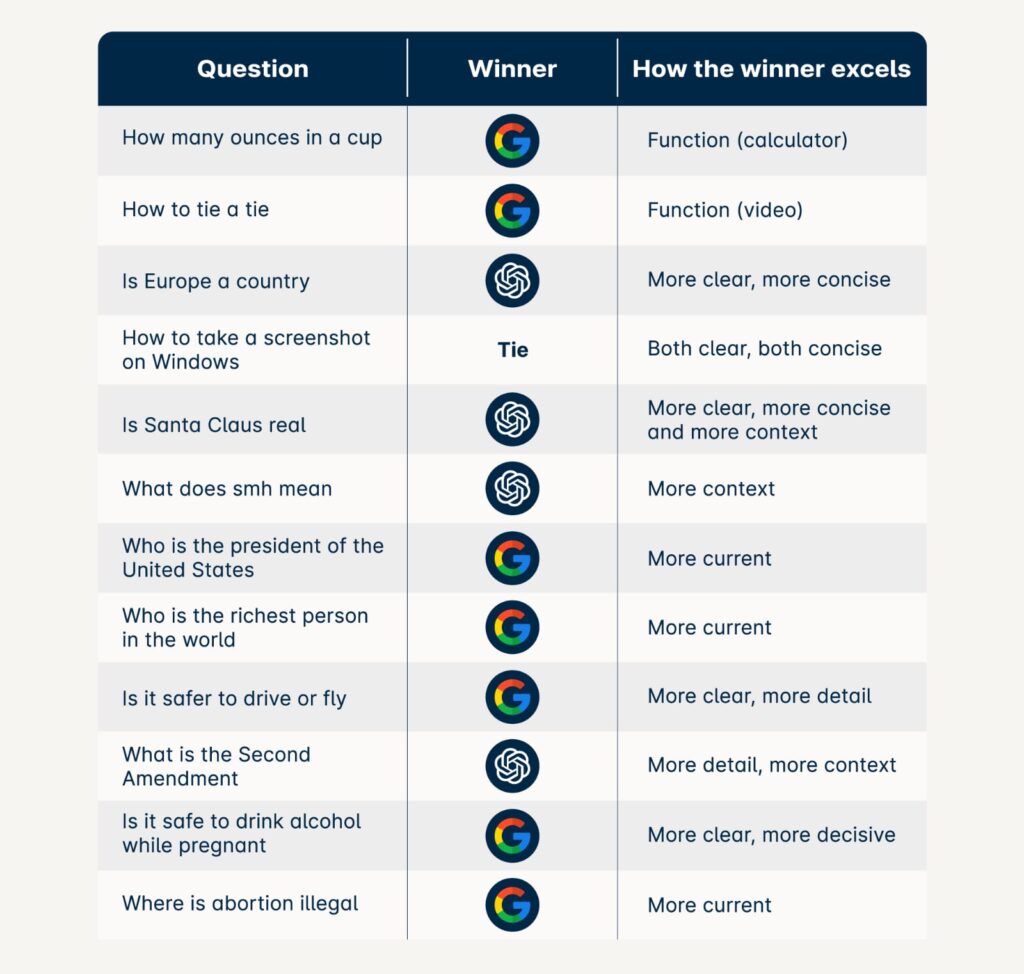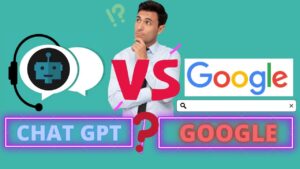The Rise of AI Search:
In the late 1990s, the Internet felt like an uncharted city, chaotic and bursting with potential. There were plenty of search engines, but none of them was very efficient. So in 1998, two Stanford students launched a project, a plan to revolutionize how we search online. That idea became Google. And for the next two decades, it changed the Internet. Google was like the front door to the web. Want to know the weather? Google it. Looking for the best sushi spot? Google it. Need an answer ASAP?

Well, Google it. Google did not just define search, it owned it, so much so that Googling is now a verb. But like all empires, Google came to challenge, and that challenge arrived in 2022.Not as another search engine, but in the form of Artificial Intelligence.
I’m talking about ChatGPT. It came two years ago. And now it is ruling the roost. ChatGPT registered 365 billion annual searches in 2024. 365 billion in one year. Do you know how much time it took Google to reach this?
Around 11 years. Think of it as a milestone. 365 billion searches in one year. Google took 11 years to reach here. ChatGPT took 2 years. At this rate, ChatGPT is growing 5.5 times faster than Google.
Although it’s not a straight contest. The playing fields are completely different.
Google launched in the late 90s. At that time, Internet was a luxury for few. By contrast, ChatGPT came in a world where 5 billion people were online. So there is no comparison. But funny enough, that is the story.
You click, you skim, you go back and forth. It’s like your own journey for information. Artificial Intelligence is different. It gives you the whole answer.
Want to know how to fix your basin? ChatGPT will tell you step by step.
Want to understand the Israeli-Palestinian conflict? Perplexity will give you an overview in 30 seconds. Wondering what to give to your niece? Claude asks, what are her interests?
And then offers 5 personalized suggestions. So with AI, search has become a dialogue. And that has changed everything. Also, this is not just about ChatGPT versus Google. This is about a whole landscape that is transforming. People are searching for products directly on Amazon. They’re discovering recipes on TikTok. They’re researching topics on AI apps.
So there is no one way to search anymore. And that is where things get complicated. You see, billions of websites rely on traffic. This traffic comes from clicks. And clicks come from search. And that search, until now, meant Google. But AI search does not always send people links. AI reads the websites, skips the links, and just gives you the answer. And for publishers, it’s a nightmare.
If no one clicks through, how do writers make money? How do businesses get discovered? How do advertisers get seen?
And no, this is not just about websites. Google itself is staring at a business model problem. Almost all its revenue comes from ads. It’s a multi-billion dollar empire, and that empire could be at risk now.
So is this the beginning of the end for Google? Not quite. 70% of search queries are still on Google. But it is being forced to evolve, and evolve fast.
Google is already rolling out AI overviews. They appear on top of the searches now. But here’s the uncomfortable truth.
Google is being reactive, not proactive. It’s playing catch-up. Luckily for Google, AI can be wrong sometimes. Sometimes AI gets facts wrong. Sometimes it makes up things entirely. And that is called hallucinating.
Like making up a historical event that never happened. AI does that. So that’s the question of where these answers are coming from.In Google, you see sources.
In AI-generated answers, that is not always the case. It doesn’t always give you the source. There’s a growing fear that we are entering a black-box Internet. Basically, you’re told the answer, but you’re not shown how we got there.
And this can be a terrifying prospect. So to sum it up, here’s a way to think about it. The Internet used to be like a giant library. You went in, you picked a few books, you read through them. Google was like the librarian that led you to those books.
AI, on the other hand, is like a hotel concierge. You walk up and ask a question, and they give you an answer. That sounds great, but it’s also a little risky. The concierge might have a bias, then you also get it wrong. So the bottom line is this.
We are not just changing search engines. We are changing how we think about finding information. And if Google does not want to be the next Yahoo, it will have to stop playing defense. Because in the real world, whoever answers best wins.
